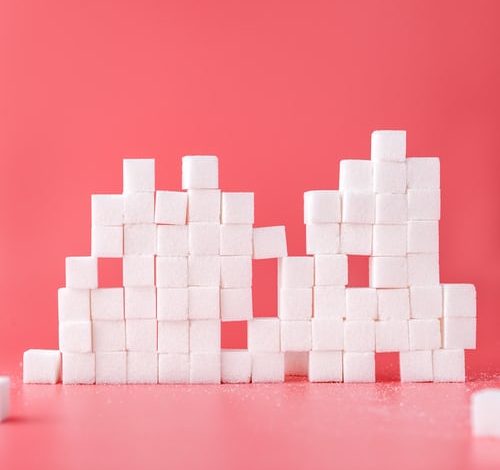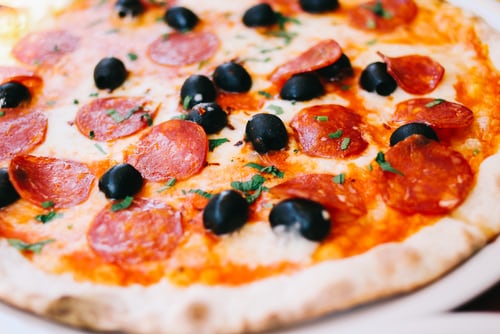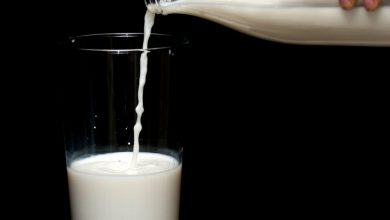
Why Carbs and Sugar Make you Hungry
Carbohydrates have been advised as part of a healthy diet for several decades. The belief stems from the observation that the body uses glucose in the blood for energy. It was assumed that carbs contained the sugar for the human body to function, and some nutritionists went as far as to argue that carbs and sugars were required for humans to live.
However, this oversimplified version of how the body transforms different types of food into energy misses a critical characteristic of carbohydrates: consuming too many carbs or processed sugars can make weight loss nearly impossible. Carbohydrates, mainly processed carbs and sugars, have properties that make the human body hungrier the more they are consumed. The carbohydrate-insulin cycle makes hunger grow despite the number of calories that are being consumed.
The Carbohydrate-Insulin Loop
As mentioned in this article, insulin is a hormone that is secreted by the body in response to spikes in blood sugar caused by food consumption. Foods that contain easily digested carbohydrates and sugars quickly pass into the bloodstream as usable glucose. The more blood sugar increases, the more insulin increases in response. Insulin signals to the cells of the body that there is energy to be gathered. When the body has stored all the glucose it can handle, the remaining glucose is stored as fat.
There is a second part of the insulin system. If blood sugar has been spiked quickly by the consumption of a lot of easily processed carbohydrates, insulin will increase so much that, even when most of the excess glucose has been removed from the bloodstream, insulin will remain long enough in the bloodstream for the body to keep taking glucose out of the bloodstream. This can cause the body to sense that blood sugar is now too low, and hunger signals will begin, even if it has only been a short time since the last feeding.
This massive spike in insulin followed by hunger is what is called a carbohydrate-insulin loop. The main reason it can be a vicious cycle is that heavily processed carbs and sugars are not part of humans’ evolved diet. The human body is not used to such rapid rises in blood sugar. The only food in nature that mimics processed carbs and sugars is honey. However, honey was never found in enough abundance to have been eaten regularly.
High blood sugar can damage the body, so the body overshoots with insulin to protect itself. That is, in response to a quick rise in blood sugar, the body produces more insulin than is needed as a safety precaution. But this precaution means that insulin remains elevated for a more extended period of time than is required to lower blood sugar levels to normal. This overreaction by the body causes blood sugar to dip, making the body hungry again.

Processed Carbs are Everywhere
The carbohydrate-insulin loop is critical in fat loss because many people that exercise hard to lose fat will eat processed carbs, become hungry, and overeat. This negates the health benefits of exercise, as increased appetite means more food is eaten. If the food that is eaten after a hard workout is full of processed carbs, the body will not dip into fat stores. Worse, the more carbs and exercise, the hungrier the body becomes.
This carbohydrate-insulin loop becomes even more problematic in a society that sells processed carbs and sugar everywhere. Processed carbs and sugars are incredibly profitable for food corporations, and the marketing budgets are enormous for these processed foods. Sugary sports drinks dominate sports. Stadiums are sponsored by Pepsi, Coke, Minute Maid, and Budweiser. Television’s most significant advertising clients are processed food companies. In short, carbs and sugar are not just everywhere, but an ingrained habit of our culture.
Blaming the Consumer
As the percentage of people in the United States with obesity continues to grow thanks in large part to the carbohydrate-insulin loop, corporations have taken the tactic to blame consumers. The blame comes in the form of corporations trying to explain that the body works on a simple Energy Balance, and that, if customers just consumed in moderation, they would be fit. This tactic shows in marketing campaigns such as the National Football League’s Play for 60. But energy consumption is not just the problem; its what type of energy is consumed.
The belief that the Energy Balance Hypothesis is why people get fat has a sharp edge where obese people feel guilty when they try and fail to lose weight. It is a nefarious cycle, as those made to feel they are lazy will often turn to comfort foods that help with the emotional pain of guilt. The foods they eat are the reason for obesity, thanks to the carbohydrate-insulin loop.

The Revolution
Fortunately, many people have come to understand that the carbohydrate-insulin loop is the main contributor to fat accumulation. The process of eliminating processed carbs and sugars is the key to every successful diet. While there are many diets, those that take away processed foods have the greatest long term success.
The internet has allowed people to share experiences of success and methods of weight loss success. This bypasses the traditional gatekeepers of nutrition that are often sponsored by large companies that fund research to protect their processed food empires.
How to Avoid Carbohydrate-Insulin Foods
Because there are segments of science that recognize the dangers of the carbohydrate-insulin loop, The Glycemic Index was created to show what foods spike blood sugar and insulin the most. While primarily designed for people with diabetes, the index is a great place to start for anyone wanting to cut fat from the body. A quick web search will provide hundreds of useful websites that list the foods that spike insulin the most.
A quick rule of thumb is to avoid white flours, sugars, and starchy tubers such as potatoes. In addition, all sodas or sugary drinks should be avoided.
It Will Not Be Easy
While it is nice to think that it is easy to simply stop eating processed carbs and sugar, it is often tough to stop. Most people that have been stuck in the carbohydrate-insulin loop have an addiction to the insulin spike that processed foods and sugars cause. Even if the addiction is kicked, sugar and carbs are a huge part of American culture. It will be impossible to avoid these foods at any location. Sugar addiction, coupled with strong cultural forces, makes long-term elimination of the carbohydrate-insulin loop difficult.
With that warning stated, those that do kick the carbohydrate-insulin loop can find support online. Eventually, carbs and sugar will not hold the power they once did with the passage of time. So while kicking sugar is hard, it is possible, and there have never been more resources to help people on their journey than right now.



